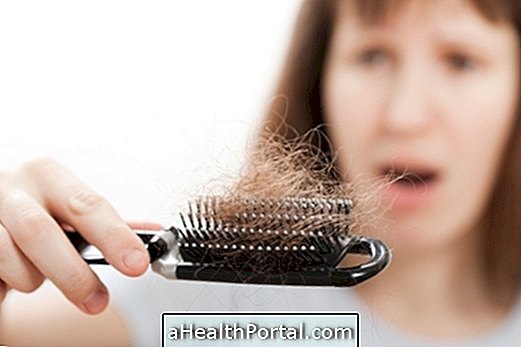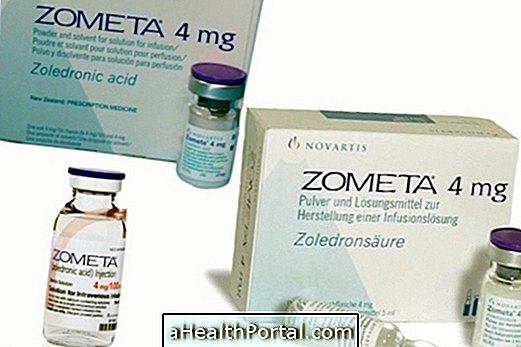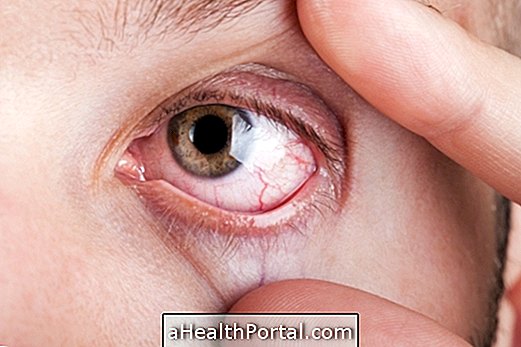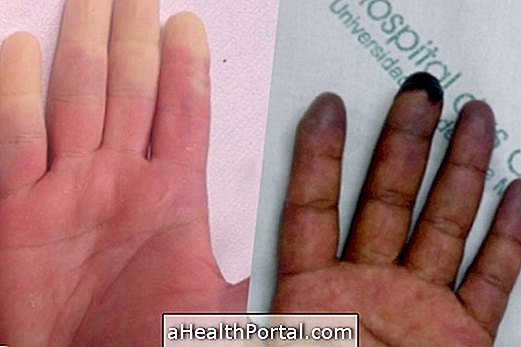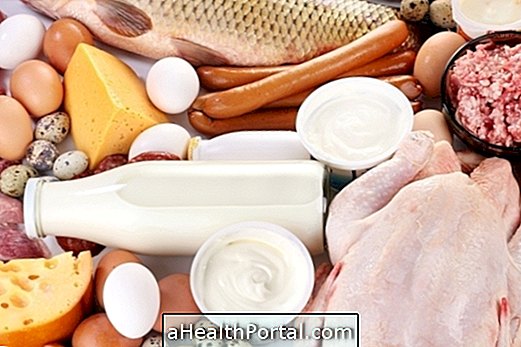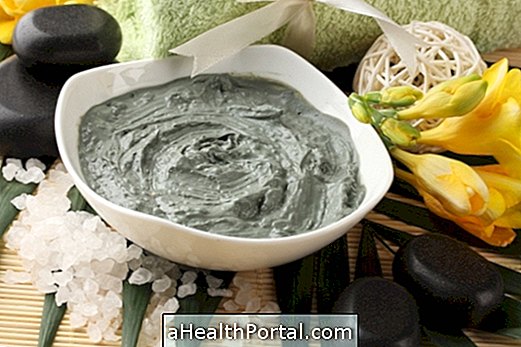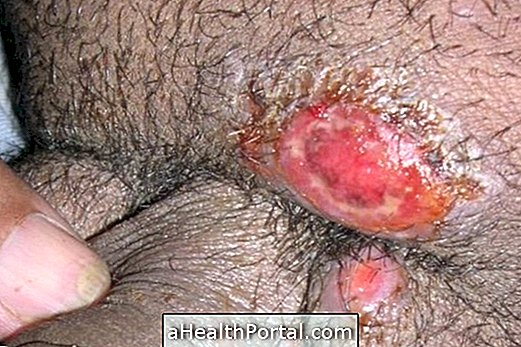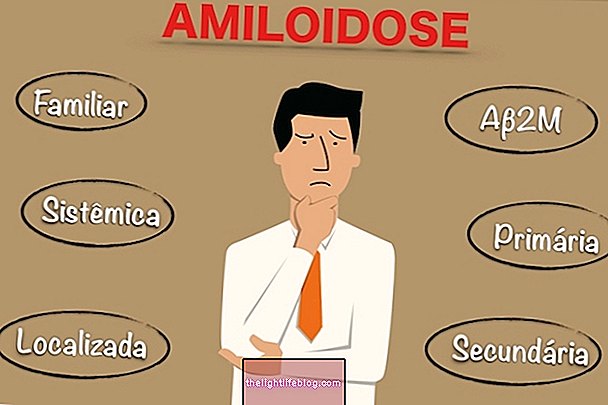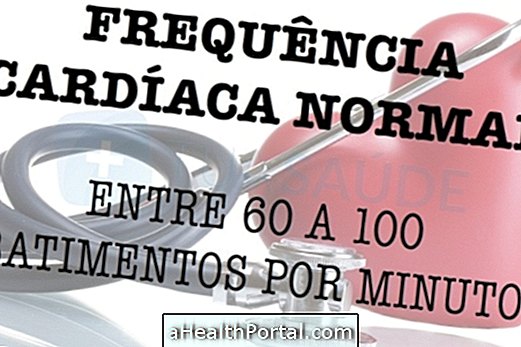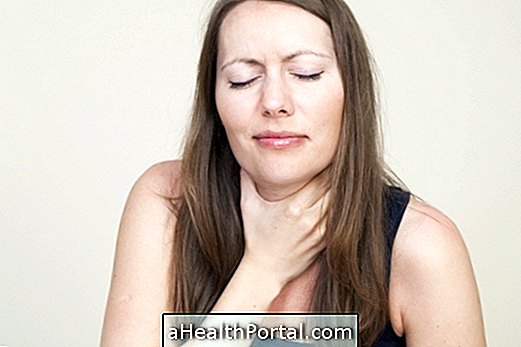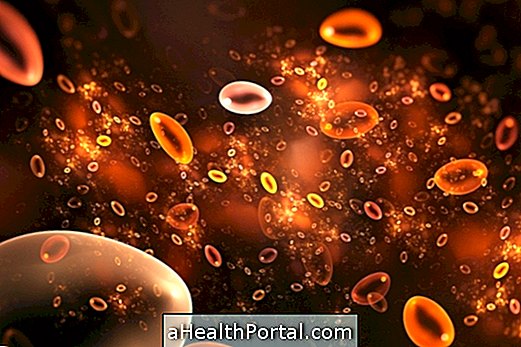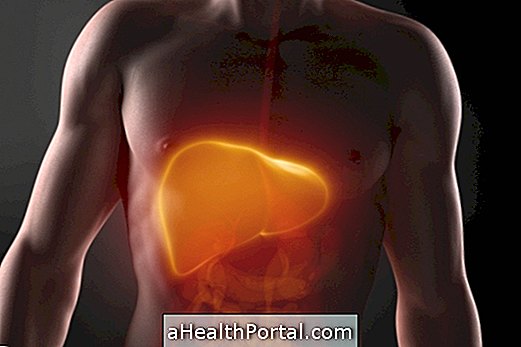Symptoms of menopause usually begin between the ages of 45 and 55 when menstruation becomes irregular and problems such as heat waves, increased sweat and skin production, and dry hair appear.
Menopause occurs due to decreased production of the hormones responsible for the menstrual cycles and fertility of the woman, and the intensity of their symptoms varies according to each organism.
Symptoms that confirm menopause
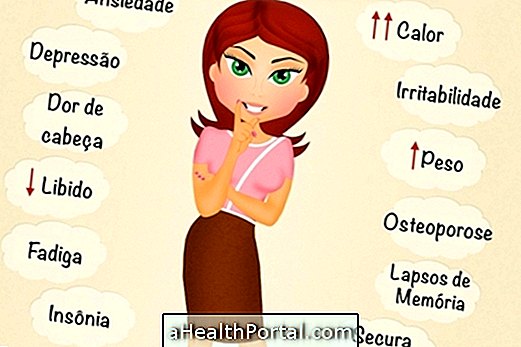
If you are over 40 and you think you may be entering menopause, select your symptoms:
- 1. Irregular menstruation Yes No
- 2. Absence of menstruation for 12 consecutive months Yes No
- 3. Heat waves that start suddenly and for no apparent reason Yes No
- 4. Intense night sweats that can interrupt sleep Yes No
- 5. Frequent tiredness Yes No
- 6. Mood changes such as irritability, anxiety, or sadness Yes No
- 7. Difficulty sleeping or less sleep quality Yes No
- 8. Vaginal dryness Yes No
- 9. Hair loss Yes No
- 10. Decreased libido Yes No

These symptoms and their intensity vary from woman to woman, because while some do not present any alteration, others present very intense symptoms and difficult to ignore.
The age of the menopause also varies from one woman to another. On average, it occurs around the age of 50, but there are women who begin menopause before age 40 and there are those who pass through it after age 52, depending on the woman's genetics and lifestyle.
How is the diagnosis made?
The diagnosis of menopause is made based on the symptoms that the woman presents and its main characteristic is to have no menstruation for at least 12 consecutive months.
In addition, the doctor may also request an examination that checks the rate of FSH in the blood to prove the menopause. See more about exams that identify menopause and how to take the pharmacy test.
What is the treatment
The treatment for menopause is indicated for women who manifest very intense symptoms that compromise their professional, family and affective life. It can be done with the use of drugs prescribed by the gynecologist based on estrogen and progesterone, but it is contraindicated for women who have uncontrolled hypertension or high cholesterol. In this case, supplementation with soy may be suggested, for example.
Another option for the treatment of menopause is to use medicinal plants and herbs, such as Agnocus ( Agnus castus ), Dong quai ( Angelica sinensis ) or Cemicifuga Racemosa ( Cimicifuga Racemosa ) under medical supervision. For more tips than you can do to ease the discomfort of menopause watch the following video:



